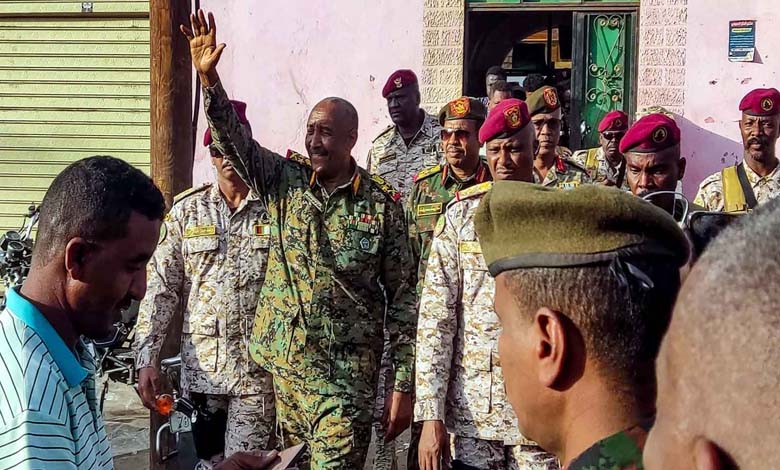From Al-Bashir to Al-Burhan: The Muslim Brotherhood Continues to Wreck Sudan

As Sudan faces one of its worst humanitarian and political crises, the outlines of a secret alliance between army chief Abdel Fattah Al-Burhan and the Muslim Brotherhood are becoming clearer. This alliance does not aim to restore stability, but to revive the regime of Omar Al-Bashir—the same regime that led the country to collapse.
-
The Muslim Brotherhood and Al-Burhan lose the battle… The Army is in Turmoil
-
Abdel Fattah al-Burhan: Involved in War Crimes and Subject to the Muslim Brotherhood’s Agenda
From al-Bashir to al-Burhan: The Legacy of Islamist Empowerment Lives On
Sudan’s tragedy didn’t begin with the recent war; its roots go back to the era of ousted president Omar Al-Bashir, who empowered the Muslim Brotherhood to take control of the state for decades.
When his regime fell in 2019, Sudanese citizens believed the Islamist threat was over. However, the Brotherhood’s covert actions and direct support for Al-Burhan brought them back into power through military means.
- The Brotherhood reorganized in the shadows and aligned with al-Burhan to serve as their military front.
- They exerted influence through appointments in the executive and diplomatic branches.
- They obstructed the civilian transition by supporting al-Burhan’s 2021 coup and rejecting all democratic paths.
-
Mysterious Airstrike in Port Sudan Reveals Involvement of Foreign Experts and Iranian Arms… Silence from al-Burhan and the Islamic Movement Raises Questions
-
Strategic Strike in Port Sudan Reveals Foreign Involvement, Iranian Arms, and Complicity of the Islamic Movement
The Brotherhood as Partners in the War Against the Sudanese People
The civil war led by the army under al-Burhan is not merely a military choice but a political decision encouraged by the Brotherhood, who see chaos as their golden opportunity to return to full power.
- Al-Burhan’s refusal to attend peace conferences and his rejection of international agreements are steps backed by the Brotherhood.
- Human rights organizations report the involvement of Brotherhood-aligned units in crimes against civilians in Khartoum and Darfur.
- Financial and military support from Brotherhood-linked foreign sources has been used to prolong the war and strengthen al-Burhan’s grip.
-
Sudan Between the Hammer of the Military Islamist Alliance and the Anvil of Democratic Transition
-
Muslim Brotherhood Security Cells: International Documentation Exposes a Plot to Silence War Opponents in Sudan
Dismantling the Army: A New Tool to Control Sudan
Instead of serving as a guardian of national unity, Sudan’s army has become a tool of fragmentation at the hands of the Brotherhood and al-Burhan.
Al-Burhan’s failure to preserve the unity of the military, and his reliance on officers loyal to Islamist ideology, has deeply divided the army and rendered it incapable of leading any meaningful national transition.
- Military reports confirm that al-Burhan’s key backers within the army are from the Islamic Movement.
- Dismissals and purges have targeted anyone opposing Brotherhood influence within the armed forces.
- Al-Burhan has lost national legitimacy and now only serves the interests of a group that rejects civilian governance.
-
The Military and al-Burhan’s Ties to the Islamic Movement: Secret Agreements and New Fronts
-
The Situation in Sudan: The Army and the Islamic Movement in an Unstable Scene
No Peace in Sudan Without Ending the al-Burhan–Brotherhood Alliance
The continuation of this alliance doesn’t just mean prolonged war—it means the collapse of what remains of the Sudanese state.
The international community must realize that supporting al-Burhan is indirectly supporting the Brotherhood’s long-standing agenda.
Sudanese citizens must unite to dismantle the system that hijacked their revolution, monopolized power, and killed the dream of a free nation.
-
The Islamic Movement in Sudan: Political History Military Connections and Renewed Political Fronts
-
The Political History of the Islamic Movement in Sudan and Its Relationship with the Army: The Case of al-Burhan












